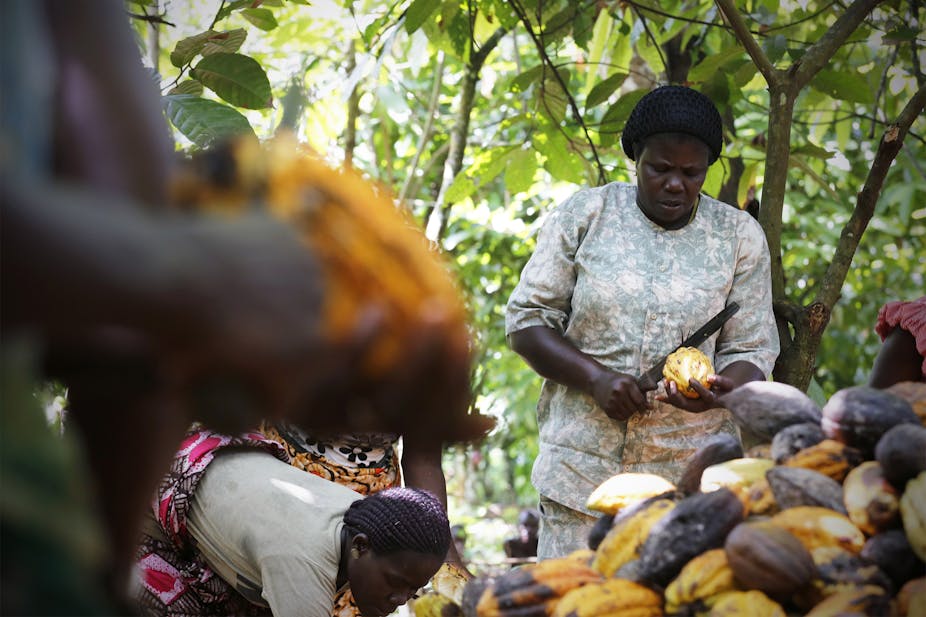The UN Human Rights Council recently adopted a resolution creating the position of a Special Rapporteur on the Right to Development. The decision was in commemoration of the 30th anniversary of the Declaration on the Right to Development which, over the past three decades, has played a significant part in the advancement of a rights-based approach to development across the world.
The creation of a UN special rapporteur is a significant move in developing the norm on the right to development and addressing controversies such as the practical aspects of implementation by states.
While the decision of the Human Rights Council is good news, there are key issues that must still be addressed. This includes how specific groups should be protected, how co-operation between various global and regional organisations will be managed and how best practice around the world can be identified.
How the right to development came about
Prior to the adoption of the UN Declaration in 1986, ideas around the human right to development emanated from prominent Senegalese jurist Justice Kéba M’Baye.
In 1972, M’Baye argued for a distinction between development as a field of study and development as a human right. His argument was that the effective realisation of freedom for all people requires that development must be viewed as a right, and not solely through the lens of economics and politics.
Around this time, developing countries had called for the recognition of development as a right of states. Seeking to assert economic self-determination, these countries argued for a New International Economic Order. The aim was to advance development equitably with the rest of the world. They were concerned that the prevailing international economic order did not adequately respond to the needs of newly independent colonies.
Viewing development as a right was an affirmation of the need for the newly independent colonies to determine their economic trajectories and for the developed states to foster this goal through reforms in the international economic order.
An alternative view on development
M'Baye’s proposition advanced a new angle for the conceptualisation of the subject of development. His thesis on development as a right of all men to live better refocused the lens of development from state rights to human rights.
Over the next decade, discussions on development as a human right gained significant momentum. In 1977 the Commission on Human Rights (now the Human Rights Council) adopted a resolution calling for a study on development as a human right.
In 1979, when the Assembly of the Organisation of African Unity (now African Union) decided to create a regional human rights treaty, there was a strong emphasis on incorporating a right to development. At the UN, deliberations on the right eventually culminated in the adoption of the Declaration on the Right to Development.
In 1998, the Commission created an Intergovernmental Working Group to monitor and review the implementation of the declaration. But the effectiveness of this Working Group has been fraught.
This highlights the need for independent perspectives on the promotion of the right to development.
Making the special rapporteur work
I believe that the special rapporteur’s mandate should address three key outstanding issues.
First, the special rapporteur needs to expound on how development can be realised for specific groups – such as vulnerable ones – within societies. The declaration emphasises the need for all individuals to engage in economic, social and cultural development.
But it is not clear how specific groups should be protected. For instance, how should development for persons with disabilities, women and children be achieved? What will constitute development for these categories? Against what standards must development be measured, and how?
Second, the special rapporteur should develop a road map for cooperation between the UN and regional institutions, such as the African Union, the European Union and the Organisation of American States for the realisation of this right within the context of the 2030 sustainable development goals.
A crucial benefit of engaging regional institutions in protecting human rights lies in their proximity to the people within their regions. Synergy is important to prevent unnecessary duplication. It is also important to ensure that there is a common understanding of how the development goals should be met and, at the same time, how a rights-based approach should be advanced.
Third, the special rapporteur should compile a study on best practices. It should draw on legal, administrative, social and financial measures taken by states and institutions in realising the right to development. These best practices can guide other states wanting to initiate similar efforts. They can demonstrate what works and how to improve on existing efforts. Also, they can help in developing key indicators for evaluating effectiveness.
The establishment of a special rapporteur is a laudable initiative in the realisation of the right to development. But the buck stops with states. The Human Rights Council must therefore ensure that the recommendations of the special rapporteur are implemented by states. That way the right to development won’t remain an elusive aspiration.

